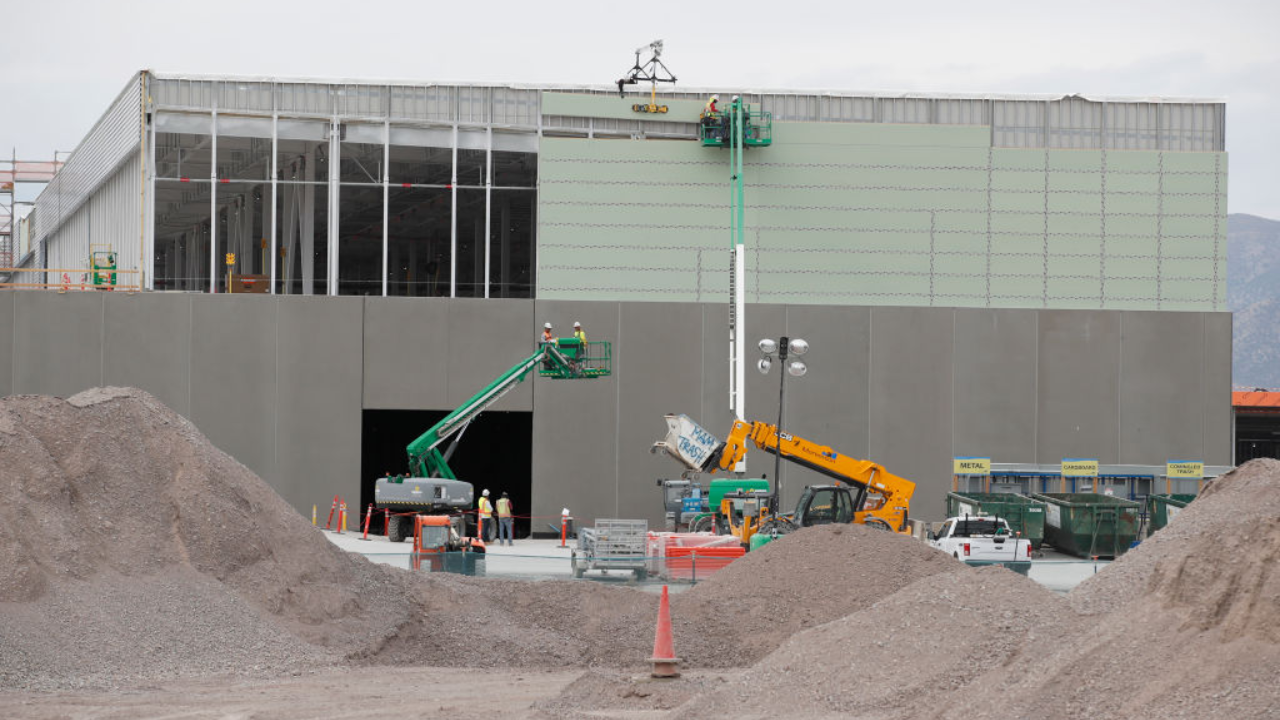Residents in New Jersey are starting to feel the financial impact of a fast-growing industry—artificial intelligence. As tech companies expand their operations in the state by building massive AI data centers, many locals say their electric bills are getting noticeably higher.
While AI may be transforming the world in many ways, it’s also placing unexpected pressure on New Jersey’s power grid, and regular people are footing the bill.
AI data centers are large buildings packed with powerful computer servers. These servers process vast amounts of information around the clock and require a constant supply of electricity to operate.
According to recent reports, this sudden increase in energy demand has already started pushing up electricity costs for households across the state.
New Jersey, like much of the U.S., is seeing a surge in demand for electricity due to the rise of AI. These data centers don’t just use power during business hours—they run nonstop, seven days a week. And they need more than just a little electricity.
They consume megawatts of power every day, much more than traditional office buildings or manufacturing plants.
Local residents, already struggling with inflation and high living costs, are now facing even higher monthly utility bills. Some say the increases have been steady over the past few months and worry that it will get worse as more data centers are built.
“My electric bill was already high, but now it’s gone up even more,” one homeowner from Middlesex County shared. “We weren’t told this would happen.”
Energy experts say that the problem lies in how power is being distributed and how much of it is available. When big facilities like AI data centers plug into the grid, they create large spikes in demand.
To keep up, utility companies may have to buy additional energy or invest in costly infrastructure upgrades. These extra costs often get passed on to everyday customers.
Public utility regulators in the state are beginning to take notice. There are growing concerns that if this trend continues, more households could be pushed into financial stress just trying to pay their utility bills.
Lawmakers are also starting to ask questions about how to balance technological progress with affordability for regular citizens.
At the same time, the companies behind these AI data centers argue that their projects are necessary for innovation and economic growth.
They claim that they bring jobs, boost local economies, and help position New Jersey as a leader in the tech space. But critics say the costs are too high for people who have no connection to the industry but are being asked to pay more to support it.
The expansion of AI technology is happening so fast that infrastructure planning can barely keep up. Many data centers are being built faster than utilities can expand power generation or upgrade transmission lines.
This mismatch creates strain, especially in areas that weren’t originally designed to handle such high energy demands.
Environmental advocates have also raised red flags. Not only do these data centers consume enormous amounts of energy, but they also contribute to carbon emissions, depending on where that electricity is coming from.
While some companies promise to use renewable energy, there are questions about whether that promise is being kept in practice.
New Jersey’s Board of Public Utilities (BPU) is reportedly reviewing how to respond to these rising energy needs. There is talk of new policies to better regulate energy usage by data centers and ensure that residents aren’t stuck with the burden. Some proposals include requiring data centers to pay additional fees or invest in local energy solutions.
In the meantime, many residents feel like they’ve been caught off guard. The tech boom may be great for the state’s reputation and for companies looking to expand, but the everyday person just wants their electricity to be affordable.
As one senior citizen in Bergen County put it, “AI is supposed to help the future, but right now it’s making life harder.”
For now, there’s no immediate solution. But as more AI data centers go up in New Jersey and across the country, the pressure is building—not just on power grids, but on the people who rely on them.
Policymakers and energy providers will need to act quickly if they hope to avoid a crisis where innovation comes at too steep a cost for ordinary families.






